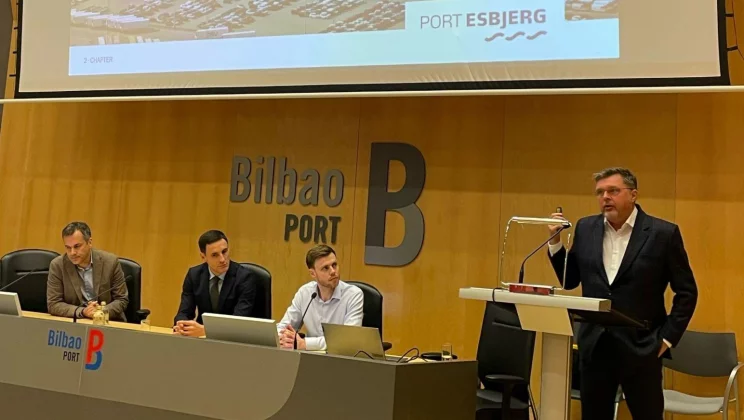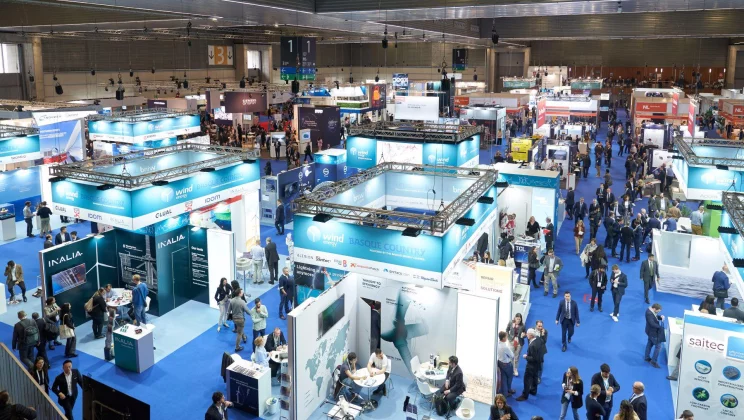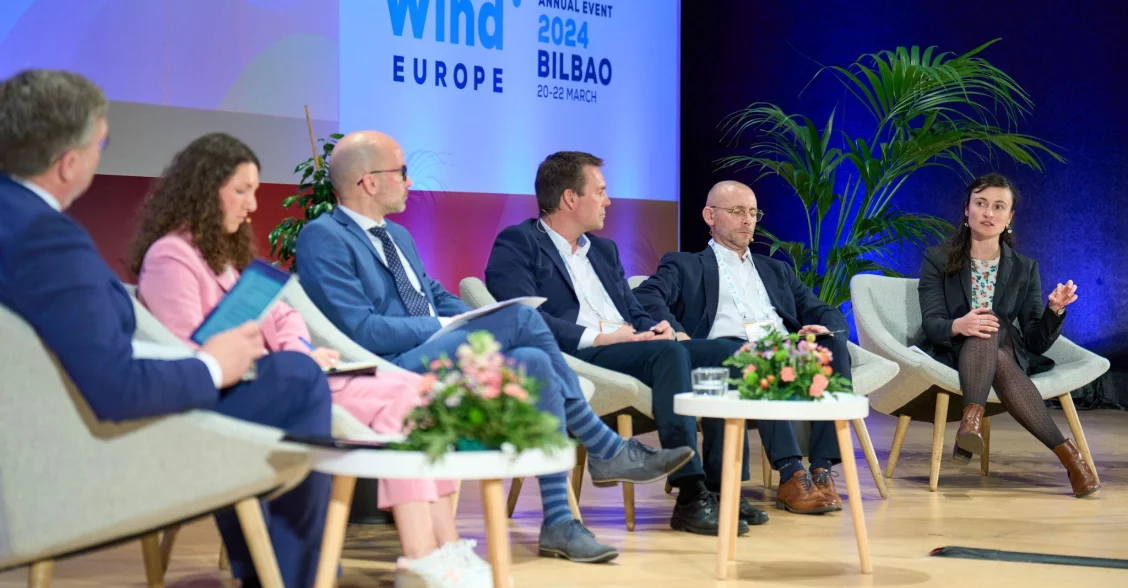The European wind industry is about to take a major leap forward. If Europe is not to lose its position as a global market leader and fall behind in the green transition, closer collaboration is called for throughout the value chain and across national borders. This was one of the key takeaways from this year’s WindEurope conference, which was held in Bilbao.
The European wind ports will have to find ways of working together even more closely in order to achieve the goals of the green transition.
That was the key message from the annual WindEurope conference, which took place in the Basque city of Bilbao on 20 to 22 March. Port Esbjerg was one of more than 12,000 attendees at the conference, and the message is clear – as wind projects and wind ports grow larger, ports need to collaborate across national borders:
“The last few days have underscored that – more than ever before – the industry is speaking with one voice. If the ports work closely together to coordinate capacity and share knowledge and best practices, we will be one step closer to meeting the European ambitions for offshore wind,” says Jesper Bank, CCO at Port Esbjerg.
Modern framework for wind auctions
As ports and port projects increase in scale, there is growing consensus that the current market structure needs to be updated. This idea is not new to the industry, as the European Commission’s Wind Power Action Plan has previously pointed to this as an absolute must.
A strong value chain hinges on better framework conditions. Ultimately, the competitive power of European companies will suffer if steps are not taken to ensure that legislation keeps pace with sector developments.
“The framework for wind auctions must be changed in order to provide an increased incentive to collaborate across ports. When we work together, we can keep operating costs down, plan for the long term and strengthen European companies,” says Jesper Bank.

"We can only meet the ambitious goals for Europe's green transition if we maintain and strengthen cooperation across the European wind ports," said CCO Jesper Bank, when the Offshore Wind Ports Platform group under WindEurope met as the starting signal for some busy and meaningful in Bilbao.
More power in the electricity network
Both onshore and offshore wind play a crucial role in the energy supply to the European energy system and will only become more important in the future. The expansion of the European energy network is a key prerequisite for the continuous and stable distribution of electricity to European consumers.
“Looking ahead, electricity from offshore wind turbines will be able to cover one third of the EU’s consumption. There’s a huge untapped potential that we’re fighting to exploit, but additional investments are needed,” says Jesper Bank.
The message from Bilbao was therefore clear: If we want more renewable energy from a combination of several forms of energy, we need to invest massively in the energy network that is the backbone of the green transition.
As an increasing variety of energy forms, such as hydrogen, enter the European energy network, we need to be able to transport and store power in more ways than we are currently able to. Inadequate investments in the electricity network will ultimately create a barrier to further expansion of renewable energy.

With over 12,000 visitors over the three days, WindEurope was a major attraction in the Basque metropolis.
European ambitions must lead to national action
65GW offshore wind by 2030. While this is a high figure, it reflects the ambitions that European wind ports must achieve within the next six years.
Although the broad outlines of the entire wind industry are being drawn at European level, it is ultimately up to individual Member States to ensure that the conditions for success are in place.
“All companies in the value chain do what they can to realise offshore wind projects, but we need increased political support to succeed,” says Jesper Bank.
One of the most significant obstacles to scaling offshore wind today is protracted case processing times and approval processes. Before the wind turbines spin, it is necessary to plan both public and private future investments in infrastructure and port development in order to provide certainty and predictability throughout the value chain.
With energy policies having become a security concern, greater coordination between Member States and companies is required if Europe is to be self-sufficient in renewable energy sources in future – an ambition that Port Esbjerg remains committed to driving forward.
Go to overview

